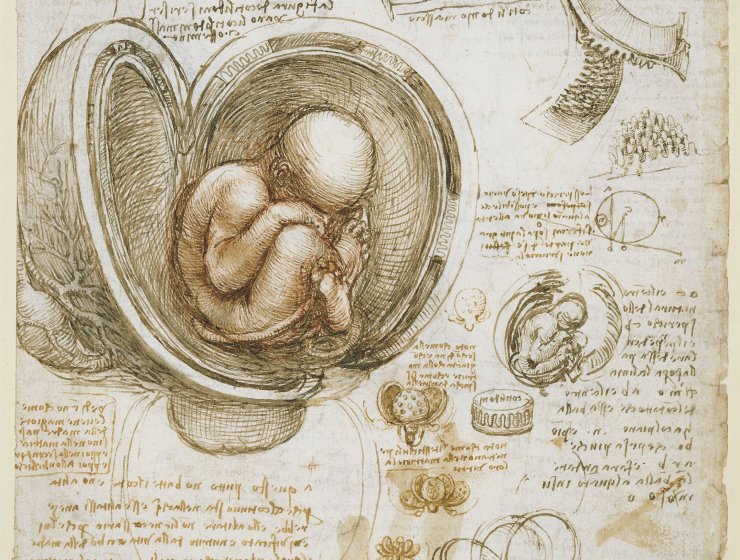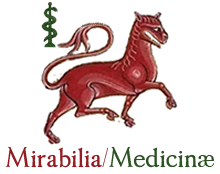
Mirabilia/Medicinæ is an online peer-reviewed international journal from the Institut d'Estudis Medievals (Universitat Autònoma de Barcelona - Spain) which provides articles, documents and academic reviews produced by scholars of the Medical Humanities.
-Index-
Medical Humanities: Art and Life
Hélio ANGOTTI NETO
Original title: Humanidades Médicas: Arte e Vida
This volume of Mirabilia / Medicinæ Journal brings three articles on Medical Humanities: Art and Life. The articles include an appreciation of art related to healthcare education, a biography of a renowned physician and an article on human life sacredness and the search for organs to donation. The three themes are intrinsically linked to the humanistic effort and offer different perspectives from a broad field of study.
Art and Medicine - An Optional Mutual Relationship
Georgia Dunes da Costa MACHADO
Original title: Arte y Medicina - Una Relación de Mutualismo Facultativo
As we evolve scientifically, we move away from the art involved in the intrinsic care of medicine. Many of our doctors are more blind, deaf, less tactile, devoid of empathy, as well as massacred by the high number of care they need to perform and the shameful conditions of work and service to which they are subjected and who are obliged to submit their patients. How can we not distance ourselves from models of behavior like that of William Osler (1849-1919)? This work presents different possibilities of using the arts as an example of a tool for reversing the proven loss of empathy of the medicine students. This through interventions in this process, as well as a reflection about the preconception of the hierarchy of knowledge and the feeling of unpreparedness of the faculty for the basic ability of mediation between art and medical-humanistic contents. It is possible, with the involvement of the emotion, as it happens with the musicians of an orchestra, to govern such mediation of an eye in the good final product: a new or old doctor that disturbs and surprises his patient, being a watershed in life of the individual who puts his full trust in him. In these terms, the use of the arts emerges as an important pedagogical resource, oriented to the rescue of the origins of Medicine, being the technologies and medical science incorporated for the benefit of the patient protagonist in a process of voluntary mutualism between medical art and medical science. This desire sums up in the phrases: “The curricular contents should teach not only the auscultation but the Listening; not only the palpation, but the Comfort to those who suffer; and not only to treat but to broaden the meaning of the act of caring”; “the worst man in science is he who is never an artist, and the worst artist is one who is never a man of science.”
René Favaloro, the Idealist
José Guilherme Pinheiro PIRES, Pedro Henrique Martins de OLIVEIRA, Rafael Vinícius Lôndero Quintino dos SANTOS
Original title: O Idealista, René Favaloro
René Favaloro was born in the city of La Plata, capital of the province of Buenos Aires on July 14, 1923. Born in a humble crib, he was able to enter and be graduated as medical doctor by the National University of La Plata in 1949. He became a doctor rural community by brilliantly practicing medicine with humanism in the small town of Jacinto Aráuz, before moving to the United States, where he revolutionized cardiac surgery. He dedicated his life to medicine and to disseminate humanism within it, for which he founded the Favaloro Foundation. Unable to withstand the corruption and tragic situation in which his beloved country was, he committed suicide on July 29, 2000.
Organ Procurement Initiatives and the Sacredness of Human Life: A Christian Perspective
Allan H. ROBERTS II
Original title: Iniciativas de Obtenção de Órgãos e Santidade da Vida Humana: Uma Perspectiva Cristã
The practice of organ procurement for transplantation is deeply engrained in the consciousness of the public worldwide, and is endorsed by most religions including Christianity. With the advent of the life-saving successes of organ transplantation have come a number of ethical issues, including those concerning efforts to balance the needs of potential organ recipients with those of possible organ donors. In this paper, I endorse current organ procurement procedures; I then describe several changes to current practice that have been suggested. I contend that each of these proposed innovations creates an imbalance regarding the Christian tenet of the absolute sacredness of all persons.


















































































